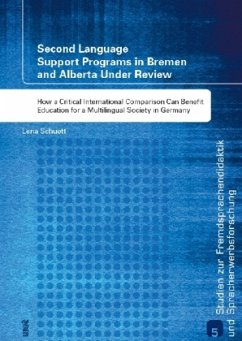The lack of institutional support provided to second language learners has been one of the central concerns as evidenced by the PISA studies. Especially in Bremen there exists a drastic need for an intensification of second language support programs due to the detected educational disadvantage for this particular group of students. Studies suggest that countries, which successfully support these learners, have tendencies towards well-established language support programs with clearly defined goals and standards. Canada, as evidenced from the same results, ranks among the world's most effective countries in supporting its second language learners. The study presented in this book aims at taking the outcomes of a quantitative database (PISA) and expanding upon the findings with qualitative methods to enrich and substantiate existing insights. Second language support areas, which are identified as problematic through teacher responses to a survey distributed in Bremen, are used as guidance for the qualitative interview study with staff involved in Alberta's second language programs. Successful elements of Alberta's language policy and planning serve as the basis for the analysis of existing structures in Bremen. The outcome of the study are combined guidance recommendations in the areas of comprehensive, integrative and continuous second language support, heritage languages and multilingualism as well as parental involvement.
Bitte wählen Sie Ihr Anliegen aus.
Rechnungen
Retourenschein anfordern
Bestellstatus
Storno

